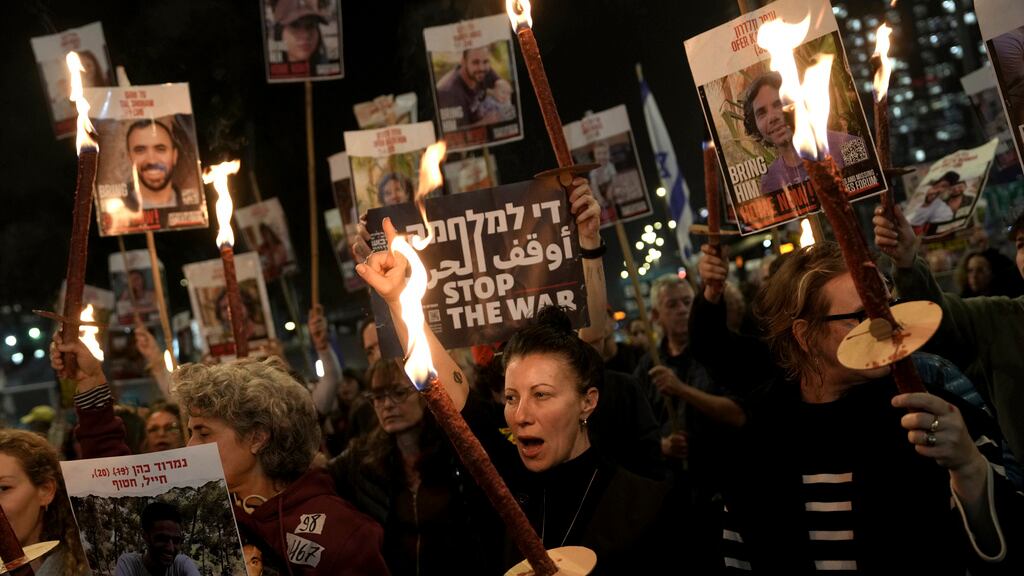TEL AVIV, Israel (AP) — Israel’s Prime Minister, Benjamin Netanyahu, said on Thursday that a “last-minute crisis” with Hamas was delaying his country’s approval of the long-awaited agreement to pause a ceasefire in the Gaza Strip and to allow the release of dozens of hostages.
Meanwhile, since the ceasefire announcement on Wednesday afternoon, Israeli airstrikes have killed at least 72 people throughout the war-torn enclave, although other reports put the number at 81.
PUBLICIDAD
Why did problems arise in the ceasefire between Israel and Hamas?
Netanyahu began pointing out issues with the agreement just a few hours after it was announced by U.S. President Joe Biden and Qatar, a key mediator in the process. The objection created a dual reality: Palestinians tired of the war in the Strip, the families of the hostages held, and world leaders welcomed an agreement expected to take effect on Sunday, although the Israeli leader said it was not yet finalized.
It was not clear if Netanyahu's statements simply reflected the maneuvers to keep his fractured government coalition together or if the agreement was actually at risk.
Netanyahu's office said that his government will not meet to approve the agreement until Hamas backs down and accused the Palestinian insurgent group of not complying with parts of the agreement in an attempt to force last-minute concessions, but did not offer further details.
Izzat al-Rishq, a senior official of Hamas, stated that the group “is committed to the ceasefire agreement, which was announced by the mediators”.
The agreement announced on Wednesday will involve the release of dozens of hostages held in Gaza and will pause the fighting with a view to a definitive end to the conflict that has destabilized the Middle East for the past 15 months and sparked protests worldwide.
Netanyahu faces great internal pressure
Netanyahu's office had previously accused Hamas of backing out of an agreement that, according to them, would give Israel the right to veto which Palestinian prisoners convicted of murder would be released in exchange for hostages.
The Israeli Prime Minister has faced great internal pressure for the return of dozens of hostages, but his partners in the far-right coalition have threatened to bring down the government if he makes too many concessions. He has enough support in the opposition to approve the deal, but doing so would weaken his administration.
One of their far-right allies, National Security Minister Itamar Ben Gvir, has already expressed opposition to the agreement. Another, Bezalel Smotrich, posted on X on Wednesday night demanding “absolute certainty” that Israel will be able to resume the war later and described the pact as “bad and dangerous” for the country.
The departure of both factions would seriously destabilize the government and could lead to early elections.
What are the details for a ceasefire?
The agreement reached on Wednesday involves the release of 33 hostages over the next six weeks in exchange for hundreds of Palestinians imprisoned by Israel. Israeli forces will withdraw from many areas, hundreds of thousands of Palestinians will be able to return to what remains of their homes, and there will be an increase in humanitarian aid.
The rest of the hostages, including the male soldiers, will be released in a second phase, much more complicated, which will be negotiated during the first stage. Hamas has said that it will not release the remaining captives without a lasting ceasefire and a complete Israeli withdrawal, while Israel has promised to continue fighting until dismantling the group and to maintain control of the security of the enclave indefinitely.
